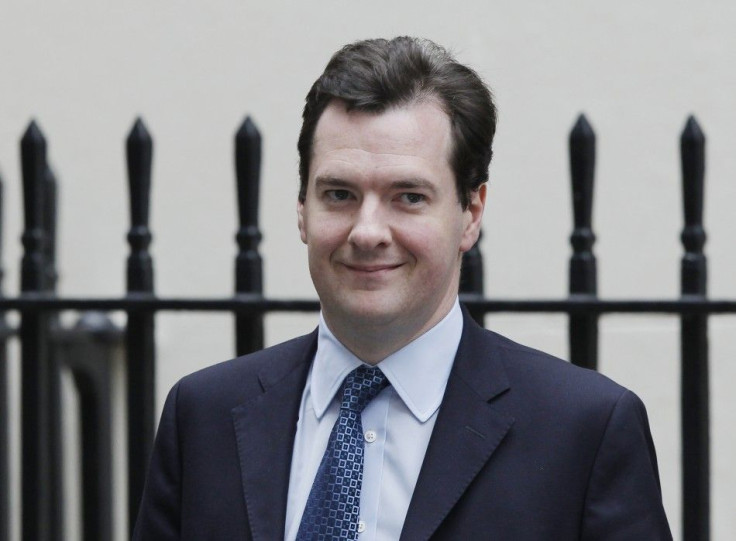UK's Osborne says no change in police reform plans

Britain's Finance Minister George Osborne said Saturday the country must tackle its "deep-seated" social problems after riots spread across the country last week, but said it would stick to its plan to reduce police numbers.
He said some communities had been left behind by the rest of the country and it was up to society and the government to re-engage with those groups who felt isolated and to make sure they know the difference between right and wrong.
"There are very deep-seated social problems which we need to tackle," he told BBC radio.
"There are communities that have just been left behind by the rest of the country. There are communities that are cut-off from the economic life-blood of the rest of the country."
The government has been criticized by some for going ahead with planned police budget cuts at a time when the nation watched with dismay as police often appeared helpless in the face of hundreds of youths looting shops and setting fire to businesses and homes during four days of riots.
But Osborne, who has pledged severe public spending cuts to deal with a record budget deficit, said the problems could not only be solved by throwing money at them.
He said the government remained committed to its plan which will take two billion pounds out of the police budget, meaning a loss of about 30,000 jobs.
"We are committed, as the Home Secretary (interior minister) and the prime minister and I have made it clear this week, to the plan we've set out for police reform," he said.
He said it was not an issue of numbers, but "improving the presence of the police in our communities, making the police more visible."
The government stung by criticism of its handling of the riots has enlisted U.S. street crime expert William Bratton to advise it on the handling of gang violence, one of the factors blamed for the disturbances.
"We want to use the advice of people like Bill Bratton to really tackle some of the deep-seated social issues like gang culture in our community," Osborne said.
"But this is not just about police budgets, this about a far bigger challenge for our society which is dealing with people who we have ignored for too long and helping them feel they have a stake in society, feel that they know the difference between right and wrong, understand their responsibilities to other communities, not just their rights, and that is the challenge for the government going forward."
He said the British economy continued to face "pretty strong" headwinds, buffeted by factors such as high oil prices, the U.S. slow down and instability in the eurozone, but said the country's budget deficit plan was making Britain a safe haven for investors.
"At the moment the concern is that growth in all western countries is not going to be as strong as people had hoped and expected even a few months ago, and we are seeing that in the falls of the stock markets," he said.
"So there is a sort of rebasing of global assumptions about the economy. In this context there has been something of a flight to safety. One of those safe harbors has been British government bonds, gilts."
He said tax revenues and spending programs were broadly on track.
Osborne also said the eurozone would see greater fiscal integration.
"Traditionally Britain... has resisted that happening because we have been concerned about a loss of influence in Europe if it did happen," he said.
"I think we have to accept that fiscal integration is going to happen, it's in our national economic interests as a country that it does happen because an unstable euro is very bad news for us..."
© Copyright Thomson Reuters {{Year}}. All rights reserved.





















